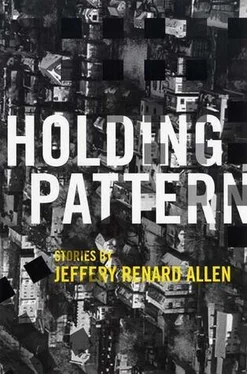Lincoln was tired of black folks blaming the white man for everything. Tired of them ( us ) marching and demonstrating and singing and shouting our lives away. White man this, white man that. Spilled milk, spoiled milk, injustices both real and imagined nothing more than specks of events and facts in the larger canvas of history. But why reveal his true feelings to this insignificant boy? Expression (communication) involves the monumental task of encounter.
I don’t know, he said.
Cars zoomed past, coming and going, waves of noise and exhaust like an accumulation of ghostly presences heard and felt but unseen. People bunched together at the pedestrian crossing like herds of cattle. Others rushed about in all directions as if hurrying out of the rain. But the day was bright and the sun was high and Lincoln felt sun crawling on his face and arms, felt sun transforming him into some being of light and heat. The boy’s nostrils cocked up at him, wide and deep, so much so that Lincoln imagined himself falling tragically inside them, lost forever.
As far as he knew, Glory was never sick a day in her life. The morning she gave up her spirit, she called him into her room. Her green shutters were thrown open to the world, sunlight pouring through the window and splattering the wall behind her bed, where she lay, her small head resting on a pillow, her magical quilt drawn up to her chin, as hot as it was, with only her two black hands and face outside it. Lincoln moved close to her side and saw wrinkles radiating out from the center of her nose, making her face look like a broken plate that had been pieced back together. A dim fire lit her cheeks.
I am bounding toward my God and my reward, she said.
Yes, ma’am.
Jesus will be calling you too someday.
Yes, ma’am.
She reminded him of the mason jars in the cellar, filled with quarters and half-dollars, the jewelry in the cookie jars under her bed, and the drawer with her burial policy, savings bonds, will, and lawyer’s name and phone number.
You better mind your p’s and q’s, she said.
Yes, ma’am.
She looked at the ceiling. Lord, open up the gate. She closed her eyes, the fire in her cheeks simmering down then extinguishing. The room became a chamber of silence.
Free at last! Lincoln said, under his breath. He was nineteen and ready to see the other side of the shining coin.
That very morning, he tried to have her body cremated. This postmortem arrangement the will forbade— see the stipulation printed in the next-to-the-last clause —so, without the usual ritual and ceremony, he stuck her in the ground. Sold the house to the first buyer. Sold her magical quilt. For one dollar. Cash.
A swirl of violent life. Lincoln’s face went hot and heavy. He leaned back against the wall, thrown, unmoored.
You all right, brother? Under the sun’s glare, the boy squinted up at Lincoln, who rode waves of light and shadow, saw the boy moving in and out of focus, the crowd swaying this way and that. His lungs needed room to breathe, the street a cage of running motors and rushing feet. He felt hollow, something trembling deep in his stomach, so he shut his eyes and took a deep breath, but the air was thick and bitter in his mouth, and he could hear cars in the distance and smell their fumes. He coughed.
Hey, the boy said.
Lincoln heard the brush fall to the ground.
Don’t cough on me.
Lincoln couldn’t move or speak.
Damn!
But Lincoln was hollow. Body eaten by flames.
Coughing on people and shit.
The boy’s voice came to Lincoln from a distance. Though his eyes were closed, Lincoln felt that everything about him was radiating, sun constricting his face and chest.
Germs. I might catch something. Shit.
Lincoln drew another deep breath, a sanitizing breeze that moved through his body and beat back the sickness. The free oxygen gave him enough strength to raise himself upright. He opened his eyes, looked at the boy from head to foot, slowly and deliberately.
The boy’s face fell a little. Didn’t mean no harm, he said.
Lincoln increased his look to full intensity.
You know I didn’t mean no harm. It’s just that white folks — Man, that’s why we got all these problems. Anger shook the boy’s thin frame. Motherfuck the white man!
Lincoln found himself looking into a face that had hardened into leather, a mouth now set in lines of hatred. The boy’s pose did nothing to lessen his anger. He spoke through clenched teeth. How much do I owe you? He extended a five-dollar bill.
The boy looked at the bill. Five dollars, he said. He snatched the bill. That green counts. He was dead serious.
Lincoln had money in the bank and plenty to spread around. The profits from his books had surpassed his inheritance. No small achievement, for Glory had had substantial property — the house alone was a heap of bread — had had shares in everything from Standard Oil to Rough Rider Saddles.
Lincoln started toward the bus stop, buildings blazing bright in the hot shimmer of the sun. He walked as fast as his legs could carry him, the world on fire.
Fight the white man!
Lincoln didn’t turn around. Moved with determined splashing strides. A billboard looming above the roof of the Walgreen’s across the street read Jesus Is Lord over Our City beneath an illustration of a big white Jesus with one hand raised as if taking a vow, being sworn in, the other hand placed over his heart. But Lincoln did not slow his pace for a better look. He had a client to meet, Mrs. Frieda Lead. He didn’t own a car. Public transportation afforded him the opportunity to study ordinary people firsthand. He quickened his step, shirt sticking to his skin as he moved under the torch of the sun.
He made it to the Metro stand just as the bus came grinding down the middle of Washington Boulevard. It banked sharply, brakes squealing. A decal taped to the windshield greeted all boarding passengers: a white hand and a black hand jointly holding the two ends of a red valentine heart, words penned in black letters across its center— The Love Bus.
The doors squeaked open. Step onto the Love Bus, the driver said. Lincoln boarded the vehicle and slipped a silver dollar into the fare box. The driver cut the bus into the center of the boulevard, throwing Lincoln’s feet out from under him. He struggled to keep his balance.
Welcome to the Love Bus. At the sound of my voice, the time will be eight thirty-five.
Are you trying to be funny?
No, sir. Folks don’t like to be late. Tall, almost a giant, the driver sat cramped down in his seat, leaning forward over the big steering wheel. Excluding his pop eyes, he was well built and handsome. About Lincoln’s age.
You can get hurt that way, Lincoln said. He sat down in the seat perpendicular to the driver’s.
And I can get hurt getting out of bed too, but that don’t mean it’s gon happen.
Lincoln’s throat clogged with words. His whole body tightened.
The driver watched the traffic but held Lincoln in the corner of his eye.
You’re a wise guy, Lincoln said.
Folks don’t like to be late. I have a job to do.
Lincoln read the driver’s nameplate: ULYSSES TUBMAN. I’ll tell you what, Ulysses, Lincoln said.
The driver gave Lincoln a quick full look.
Don’t talk to me, and I won’t talk to you.
The driver tightened his grip on the steering wheel. God bless you, he said.
Lincoln noticed that the driver had propped one of his novels, Hard Rock’s Hole in One , in the space between the windshield and dashboard, but Lincoln suppressed any glow of recognition. You’re lucky I’m in a good mood today, he said.
God bless you, the driver said.
Stupid bastard. He scouted out the other passengers. Two girls sat a few seats behind the driver. The first day of spring found them in bicycle pants and sleeveless T-shirts, their skin like melted caramel under the sunlight. They wore the latest haircuts, one girl completely bald on the right side of her head, thick corn rolls trailing down the left, the other girl bald on her left, corn rolls on her right. An older woman sat a few seats behind them, sharp in a full-length black dress, with a prim white bow at the neck, stockings, and pumps. A sporty tam mushroomed above her head, white hair spilling out from under it like melting snow. Granny, you must have been fine in your day. A white man lay curled up in the seat at the rear of the bus, clutching the boomerang-shaped collar of his winter coat. Some of these poor white trash are worse than the lowest niggers and all their low sorry ways. Lincoln watched the two girls, every movement, every gesture.
Читать дальше












